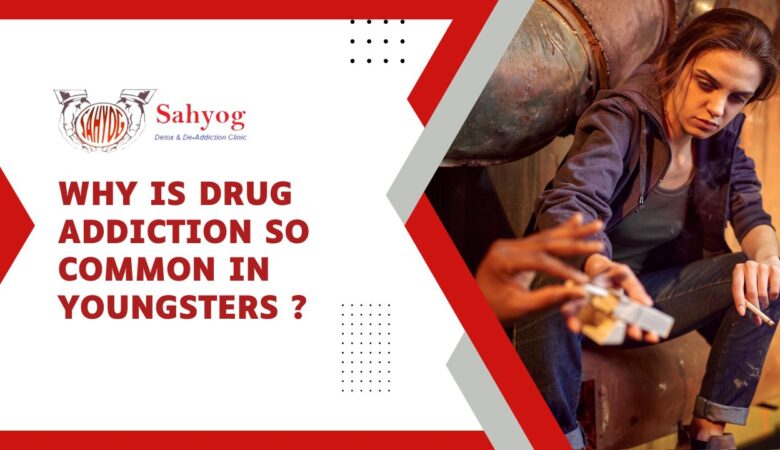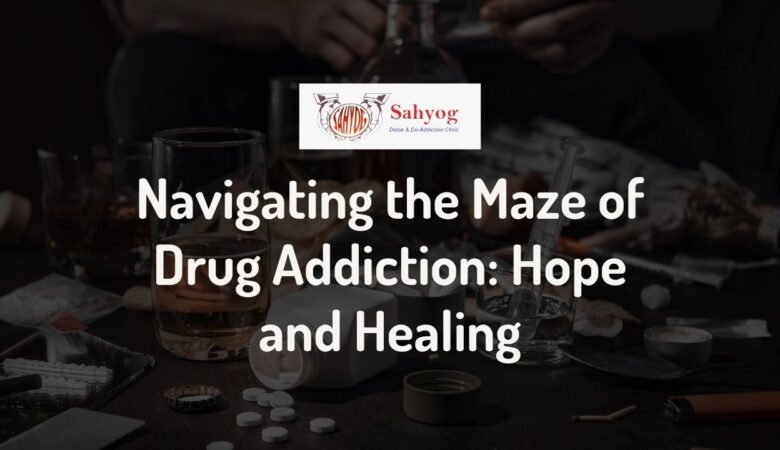Why is drug addiction so common in Youngsters?
Introduction to the issue Hey there, fellow readers! Today, let’s dive into a topic that has been causing waves of concern in our society – why drug addiction seems to be on the rise among youngsters. It’s a tough issue to tackle but one that needs our attention now more than ever. So, grab a cup of coffee and join me as we explore the reasons behind this troubling trend and what we can do about it. Let’s get started! Factors contributing to drug addiction in youngsters: Youngsters today face a multitude of factors that contribute to drug addiction. One significant influence is peer pressure, where individuals feel compelled to fit in with their social circle by engaging in substance use. The desire for acceptance can lead them down a dangerous path. Moreover, the stress and anxiety prevalent in today’s fast-paced world can drive young people towards drugs as a coping mechanism. The pressures from school, family expectations, and societal standards can become overwhelming, pushing them towards seeking solace in substances. Another critical factor is the lack of parental guidance and supervision. When children don’t have strong role models or supportive figures at home, they may seek validation elsewhere – sometimes turning to drugs for comfort or escape. This absence of stable guidance leaves them vulnerable to negative influences outside the home environment. Understanding these underlying factors is crucial in addressing the issue of drug addiction among youngsters effectively. By recognizing and tackling these root causes head-on, we can create a more supportive and nurturing environment for our youth to thrive without resorting to harmful substances. – Peer pressure Peer pressure is a powerful influence that can lead youngsters down the path of drug addiction. The desire to fit in and be accepted by their peers often pushes them to engage in risky behaviors, including experimenting with drugs. The fear of being left out or labeled as uncool can be overwhelming for many young people. When surrounded by friends who use drugs, it can become normalized and seem like the only way to belong. The need for approval from their peers outweighs any concerns about the consequences of substance abuse. Youngsters may feel pressured to try drugs simply to avoid feeling isolated or excluded from their social circle. The impact of peer pressure on drug addiction among youngsters cannot be underestimated. It is essential for parents, schools, and communities to address this issue proactively and provide support systems that empower young individuals to make positive choices for themselves. – Stress and anxiety Life as a youngster can be overwhelming with the pressures of school, peers, and family expectations. The constant need to excel in every aspect can lead to stress and anxiety levels reaching new heights. This emotional turmoil often drives many young individuals towards seeking solace in drugs. The fear of failure or not meeting societal standards adds immense pressure on the shoulders of youngsters. In an attempt to escape these feelings, some turn to substances for temporary relief. However, what starts as a coping mechanism soon spirals into a full-blown addiction. Amidst this chaos, it is crucial for parents, schools, and society as a whole to recognize the signs of stress and anxiety in young people. Providing support systems and resources for mental health issues is essential in preventing drug addiction from taking hold. Let’s work together to create a more nurturing environment that prioritizes mental well-being over unrealistic expectations. – Lack of parental guidance and supervision Parental guidance and supervision play a crucial role in shaping the behavior of youngsters, including their susceptibility to drug addiction. When parents are absent physically or emotionally, young individuals may seek solace in substances to cope with feelings of neglect or loneliness. Lack of communication and boundaries at home can leave teenagers vulnerable to influences from the outside world. Additionally, when parents are unaware or indifferent to their children’s activities, it creates an environment where experimentation with drugs becomes easier. Without proper guidance on making healthy choices and understanding consequences, adolescents may turn to substances as a means of escape without realizing the long-term harm it can inflict. It is essential for parents to actively engage with their children, create open lines of communication, set clear expectations, and provide emotional support. By being present and involved in their child’s life, parents can help steer them away from the dangers of drug addiction towards healthier alternatives. Impact of drug addiction on youngsters: Drug addiction in youngsters can have devastating consequences on their physical health. Substance abuse can lead to a range of issues such as cardiovascular problems, respiratory disorders, and liver damage. The long-term effects can be severe, impacting their overall well-being and quality of life. In addition to the physical implications, drug addiction also takes a toll on the mental health of young individuals. It can contribute to anxiety disorders, depression, and other psychological issues. The cycle of substance abuse often worsens mental health conditions, creating a challenging situation for those struggling with addiction. The combination of physical and mental health consequences underscores the urgent need to address drug addiction among youngsters. By understanding the holistic impact it has on individuals, we can better support prevention efforts and provide effective interventions for those in need of help. – Physical health consequences Drug addiction in youngsters can have severe physical health consequences that can impact their overall well-being. Substance abuse can lead to a range of health issues, including cardiovascular problems, respiratory issues, liver damage, and an increased risk of infectious diseases. The use of drugs can also affect the brain’s functioning and structure, leading to cognitive impairments and memory problems. Additionally, prolonged drug abuse can weaken the immune system, making individuals more susceptible to illnesses. Moreover, substance abuse often leads to poor nutrition habits and erratic sleeping patterns, further compromising the body’s ability to function optimally. These physical health consequences not only harm the individual’s body but also pose long-term risks that may persist even after overcoming addiction. – Mental


